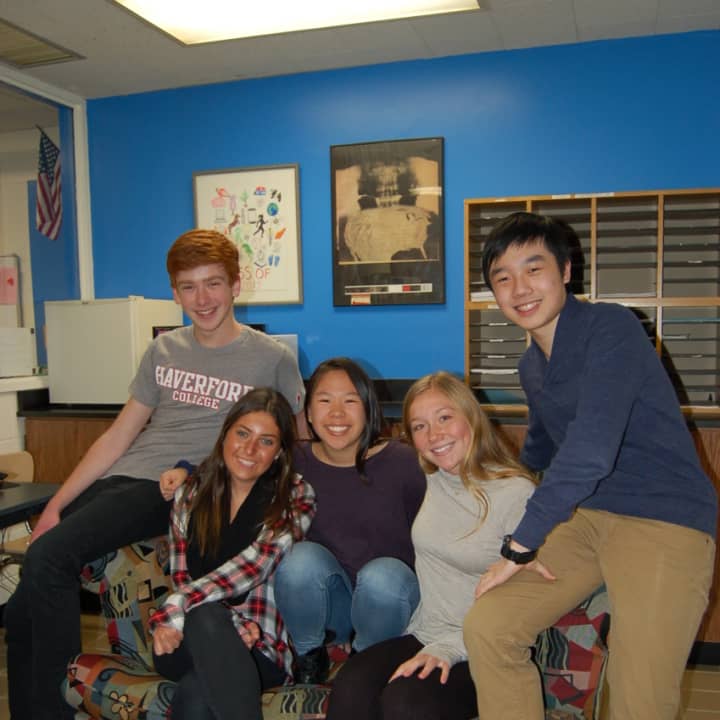They were named Wednesday, and are among 300 high school seniors nationwide selected as semifinalists from a field of 1,750. The semifinalist designation means they each earn a $1,000 scholarship, and a $1,000 for each student goes to Byram Hills High School, officials said.
The students are: Sela Berenblum, Kevin Chang, Dominick Rowan, Lyndsay Siegle and Sarah Tang. The students all completed research projects as part of Byram Hills' Dr. Robert Pavlica Authentic Science Research Program.
School officials said this program has produced 96 Intel semifinalists and 18 finalists over the years, along with finalists and winners of other top research competitions.
"These five Byram Hills students represent the breadth and depth of intellectual capacity that young people can achieve within a supportive community and with proper mentoring,” said David Keith, who directs the science research program.
For Berenblum, her project focused on why one emergency contraceptive pill is more effective than another. Her project was titled “Understanding Emergency Contraceptive Mechanisms of Action: Computational Molecular Modeling of the Progesterone Receptor Against Progesterone Receptor Modulators.”
Chang researched how certain cancer cells develop resistance to treatment in a project called “Determining Resistance Mechanisms in Mantle Cell Lymphoma: The Search for Therapeutic Targets to Combat Acquired Resistance to Apoptosis.”
Rowan's project, titled “Determining the Frequency of Jupiter Analogs, and the Announcement of a New Jupiter Analog Orbiting HD32963,” looked at how similar our solar system is to others in outer space.
Siegle's research focused on the likelihood of children mimicking parental behavior in a project called “Genopolitics: Determining the Genetic Basis of Political Behaviors and Attitudes through Twin Studies.”
And, Tang worked on studying how parasites can improve colitis symptoms in her project titled “Examining the Role of Stat6 in Altering the Microbiota with Heligmosomoides polygyrus Infection: The Potential of Helminthic Therapy in Treating Autoimmune Disorders.”
All students worked with professional mentors along with teachers at school. On Jan. 20, 40 semifinalists will be named Intel Science Talent Search finalists and travel to Washington D.C. in March to compete for $1 million in awards.
Click here to follow Daily Voice Armonk and receive free news updates.


